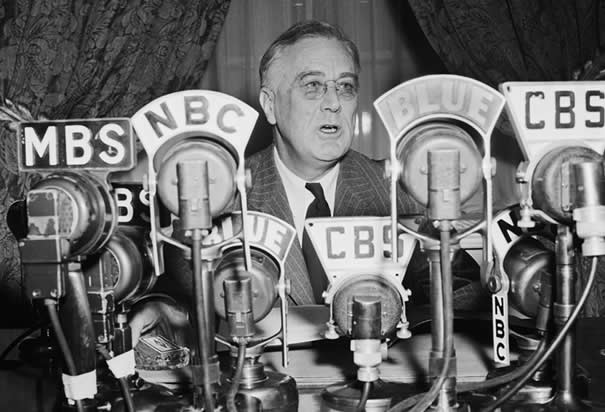Adolf Berle, Jr., was one of the five original members of President Roosevelt’s “Brains Trust” and helped shape the general design of the New Deal [1]. He was an important public intellectual widely known for his recognition of a new era of corporate power, which had overridden the traditional economics of supply and demand, competition and equilibrium. He wrote: “The old economic forces still work and they do produce a balance after a while. But they take so long to do it and they crush so many men in the process that the strain on the social system becomes intolerable” [2].
Adolf Augustus Berle, Jr., was born in Brighton, Massachusetts on January 29, 1895, the second of the four children of Adolf Berle and Mary Augusta Wright. The elder Adolf was a Calvinist minister who was unhappy with his profession because it was “indifferent to monopoly capitalism, unemployment, political corruption, and other social ills.” He was part of the Social Gospel movement, which sought to apply Christian principles to every aspect of life, including government. He wanted his two sons to enter the legal profession, because “… law school better prepared a young man for preaching the Social Gospel than any divinity school” [3].
Adolf Sr. was also dissatisfied with the education available to his children and undertook much of the task himself. The siblings—Adolf Jr., Lina, Miriam, and Rudolf—were taught foreign languages and classical literature. Young Adolf excelled. He “graduated from high school at age 12 and easily passed the entrance examinations for Harvard, although he was not allowed to begin his studies there until he was 14.” He received bachelor’s, master’s, and law degrees from Harvard at ages 18, 19, and 21 [4]. One of his professors was future Supreme Court Justice Felix Frankfurter, who asked young Berle if he had found the course lectures valuable: “No, not very valuable,” Berle answered; “Then why did you attend so regularly?” Frankfurter asked. Berle replied: “They were about the best that I could find in this place” [5].
In 1919, Berle and his brother established the law firm Berle & Berle in New York City, and he later joined the faculty of Columbia Law School. He also volunteered at the Henry Street Settlement House (an important Progressive Era reform organization). Most notably, he co-wrote (with Gardiner Means), The Modern Corporation and Private Property, which became “one of the most influential economic treatises of its time” [6]. Raymond Moley, one of Franklin Roosevelt’s early advisers, read the book and brought Berle into FDR’s inner circle. Berle later recalled his enthusiasm for working for FDR: “I felt caught up in a great moment in history. Roosevelt was an inspiring, vital man for whom I burned to do service” [7].
During the New Deal years, Berle served as counsel for the Reconstruction Finance Corporation, helped write some of Roosevelt’s speeches and, in 1938, was named Assistant Secretary of State for Latin American Affairs. But his main role was advising the president on key issues [8].
After the New Deal, Berle continued his legal practice and teaching, wrote several books, and briefly served in the Kennedy Administration. He died on February 17, 1971, survived by his wife Beatrice; son Peter; two daughters, Mrs. Clan Crawford and Mrs. Dean Meyerson; all his siblings; and 10 grandchildren [9]. Though he was considered by some to be abrasive, the New York Times recalled Berle’s dedication to public service: “Here was that rare resource – a fine mind devoting its great talent to the city, to the nation and to humanity” [10].
Sources: (1)Rexford Tugwell, The Brains Trust, New York: Viking Press, 1968, pp. xi-xii. The other original Brain Trusters were Raymond Moley, Rexford Tugwell, Samuel Rosenman, and D. Basil O’Connor. (2) Adolf Berle, “The Social Economics of the New Deal,” New York Times, October 29, 1933; also see, “New Deal Is Held Aid To Individual,” New York Times, March 4, 1934. (3) Jordan A. Schwarz, Liberal: Adolf A. Berle and the Vision of an American Era, New York: The Free Press, 1987, pp. 2-5. (4) “Adolf A. Berle, Jr. Dies At Age 76,” New York Times, February 19, 1971. (5) Roy Harrod, “Adolf Berle Recalled,” New York Times, February 26, 1971. (6) See note 4. (7) Ibid. (8) Ibid. (9) Ibid. (10) “Adolf A. Berle, Jr.,” New York Times, February 20, 1971.
« Back to Glossary Index